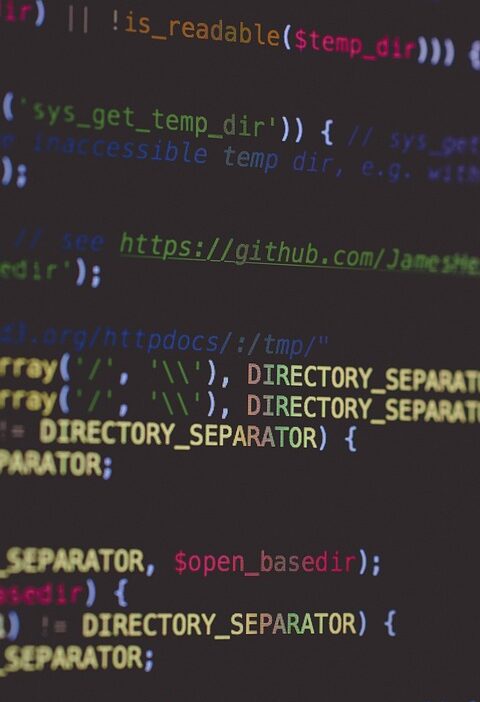In today’s rapidly evolving tech landscape, developers need a robust set of tools to increase efficiency, improve workflow, and streamline collaboration. Whether you’re a seasoned coder or just starting out, the right tools can make a significant difference in your productivity and the quality of your work. Here are the top 10 must-have tools for modern developers.
1. Version Control Systems (Git)
Git has become the de facto standard for version control in software development. It allows developers to track changes in their code, collaborate with others, and even revert back to previous versions if necessary. Platforms like GitHub and GitLab enhance this experience by providing repository hosting and collaboration features, making it easier for teams to work together.
Key Features:
- Branching and merging
- Collaboration with pull requests
- Comprehensive history tracking
2. Integrated Development Environments (IDEs)
A good IDE is essential for code development. Tools like Visual Studio Code, IntelliJ IDEA, and PyCharm provide syntax highlighting, debugging tools, and extension support. These features create a streamlined coding experience, making it easier for developers to write, test, and debug their code in one place.
Why Choose an IDE?
- Enhanced productivity with built-in tools
- Better code management and navigation
- Customizable environment with plugins
3. Containerization (Docker)
Docker simplifies the process of developing, shipping, and running applications by using containers. This allows developers to package an application along with its dependencies, ensuring it runs consistently in any environment. Docker also supports microservices architecture, which is gaining traction in modern application development.
Benefits:
- Consistency across different environments
- Isolation of applications
- Simplified deployment processes
4. Collaboration Tools (Slack/Trello)
Communication and project management are vital in any development project. Tools like Slack facilitate real-time collaboration, while Trello offers a visual project management solution. These platforms help teams stay organized, track progress, and maintain clear communication channels, all essential in modern development practices.
Features to Look For:
- Channels for different teams or projects
- Integration with other tools (e.g., GitHub, JIRA)
- Easy task tracking and assignment features
5. APIs and API Development Tools (Postman)
APIs are at the core of modern web development, and tools like Postman make it easier to test and explore APIs. Postman allows developers to send requests, analyze responses, and automate workflows, which is crucial for building and maintaining robust applications.
Functionality Highlights:
- User-friendly interface for crafting API requests
- Ability to create automated test suites
- Environment management for different settings (development, production)
6. Cloud Services (AWS, Azure, Google Cloud)
Cloud platforms like Amazon Web Services, Microsoft Azure, and Google Cloud provide scalable infrastructure for deploying applications. They offer a range of services, from storage solutions to machine learning capabilities, enabling developers to focus on building rather than managing hardware.
Advantages:
- Scalability and flexibility
- Pay-as-you-go pricing
- Access to cutting-edge technology (AI, ML, container orchestration)
7. Static Code Analysis Tools (SonarQube)
Static code analysis tools like SonarQube help developers identify potential bugs, vulnerabilities, and code smells early in the development process. By automatically analyzing code quality, these tools can significantly improve the reliability of codebases.
Key Features:
- Continuous integration support
- Customizable quality gates
- Multi-language support
8. Testing Frameworks (JUnit, Jest)
Automated testing is a crucial aspect of modern software development, ensuring that applications function as intended. Frameworks like JUnit for Java and Jest for JavaScript make it easy to create unit tests, integration tests, and end-to-end tests.
Benefits of Automated Testing:
- Early bug detection
- Increased code reliability
- Reduced manual testing efforts
9. Task Runners and Module Bundlers (Webpack, Gulp)
Tools like Webpack and Gulp help automate repetitive tasks such as minification, compilation, and optimization. These tools enhance the development process, allowing developers to focus more on coding rather than on managing project build processes.
Advantages:
- Faster build times
- Customizable workflows
- Enhanced performance for web applications
10. Documentation Tools (Swagger, GitBook)
Good documentation is essential for successful projects. Tools like Swagger for API documentation and GitBook for general project documentation help developers create clear, user-friendly documentation that helps onboard new team members and improves collaboration.
Features to Look For:
- Easy integration with codebases
- Markdown support
- API endpoint visualization
Conclusion
The modern developer’s toolkit is vast, and choosing the right combination of tools can significantly impact productivity and overall project success. From version control to cloud computing, each tool plays a vital role in the development lifecycle. By leveraging these must-have tools, developers can navigate the complexities of modern software development with greater ease and efficiency.



